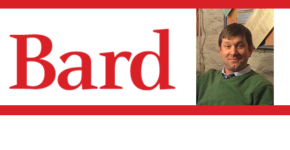 Online learning is becoming the norm after the pandemic.
Online learning is becoming the norm after the pandemic.
Timand Bates, visiting professor of education at Bard College, discusses how it can affect student learning.
Timand is currently Program Manager of the Open Society University Network’s Online Courses. He is also a Visiting Professor for the Bard College Prison Initiative and for the Institute of Education at American University of Central Asia. Timand was Associate Dean of Students at Bard from 2014-2022 and a Visiting Faculty member of the MAT program 2020-2023. After graduating from Bard College Bard College in 2002, Timand taught “Methods for Teaching Reading” at California State University, East Bay from 2004-2006 while directing the activities of the Oakland Reading Center for Reading Revolution. In 2008, Timand became a Carrol and Milton Petrie Scholar at Teachers College, Columbia University, earning his MA in the Teaching of English. Timand has presented his work on student assessment at the NYC Writing Project Conference and at the National Conference for Teachers of English in Washington, D.C.
Students Want a Liberal Arts Global Classroom Online
The pandemic challenged educators across the world to move quickly toward models of online learning. As we progressed to a post-pandemic world, we began to study the issue: Will the Liberal Arts experience–inquiry- & dialog-based, ongoing assessment & synchronous study–live on as more and more universities operate online? Our research answers yes to this important question, if we listen to what students say.
In the last three years, we’ve provided a model of online learning which offers students the experience of learning in real-time with diverse global participants in a liberal arts network of universities, choosing among courses organized by theme and earning transferrable credits and micro-credential certificates. We’ve enrolled thousands of students from universities in Afghanistan, Haiti, Myanmar, Taiwan, and Ukraine, to name just a few. Students are responding to the online Liberal Arts model with remarkable results:
Over 85% of students “Strongly Agree/Agree” that online liberal arts courses improve their ability to examine ideas critically, their ability to evaluate arguments, and/or their ability to make sound deductions.
Over 84% of students “Strongly Agree/Agree” that taking a class with students from different countries enhances their learning.
We’re excited to continue our research into the online liberal arts, global network, model. Student voices from around the world suggest we’re on the right path.
